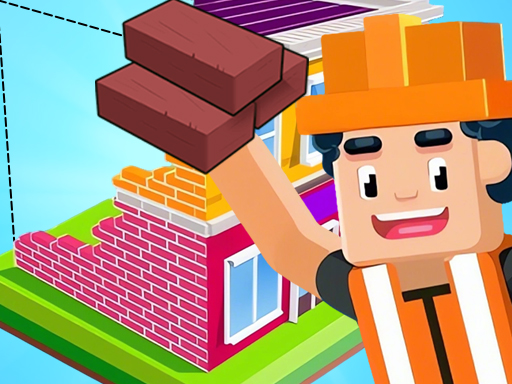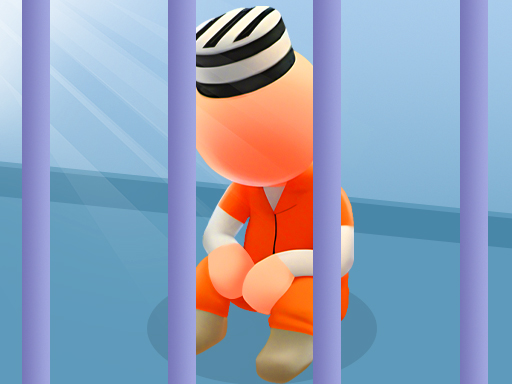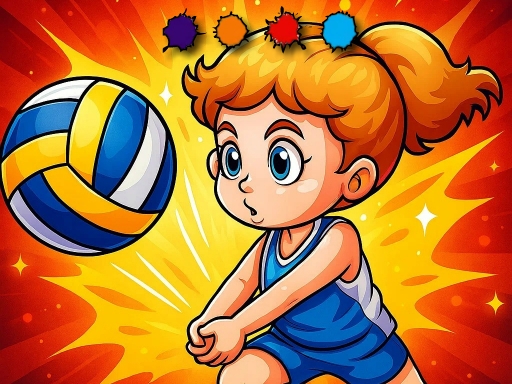ZigZag Dash
About ZigZag Dash
Okay, so you know how sometimes you’re just scrolling, maybe a little bored, maybe looking for something to kill a few minutes, and then *bam*? You stumble upon something that just… clicks? That’s exactly what happened to me with ZigZag Dash. Honestly, I’m still buzzing from my last session. I mean, I’ve played a lot of games, seen a lot of trends come and go, but there’s something genuinely magical about this one. It’s not about flashy graphics or an epic storyline; it’s about that raw, pure, unadulterated gaming joy that grabs you by the collar and doesn't let go.
The first time I saw it, I was like, "Okay, a ball, a path, click to change direction. Simple enough." And that’s the genius of it, right there. It *looks* simple. Deceptively so. You start, and there’s this little ball, just rolling along a narrow, winding path. And your only job? Don’t fall. To stay on the path, you have to change the ball’s direction, and you do that with a single, satisfying tap on the screen. Every tap, every single one, is a point. It’s this brilliant little positive reinforcement loop, you know? Each tap isn’t just a direction change; it’s a tiny, satisfying "ding!" in your mental scoreboard, pushing you to keep that chain going.
What I love about games like this is how quickly they strip away all the extraneous stuff and get right to the core of what makes gaming fun: challenge, precision, and the thrill of mastery. You pick it up, and within literally five seconds, you understand the rules. But understanding the rules and actually *mastering* them are two entirely different beasts. You'll find yourself instantly hooked, thinking, "I can do better than that." And then, just like that, an hour has evaporated, and you're still saying "just one more try."
There’s this incredible tension that builds, even in such a minimalist setting. You’re watching that ball, this little sphere of pure momentum, hurtling along. The path isn't just straight; it’s a zigzag, as the name suggests, but it's more than that. It’s a series of sudden, unforgiving turns that demand split-second decisions. You can almost feel the pulse in your fingertips as you anticipate the next corner. Is it a sharp 90-degree turn? Or a more gentle curve that still requires a precise tap? The visual feedback is subtle but effective; the path glows, or maybe it’s just my heightened state of focus making it seem so, just before a critical juncture, giving you that fraction of a second to react. And that’s where the real skill comes in, that almost psychic connection you develop with the game. You're not just reacting; you're *predicting*.
The brilliant thing about this is how it scales. When you first start, it feels almost leisurely. You get a rhythm going, tap, tap, tap. You feel good, you're racking up points. But then, without warning, the game starts to get faster. And I mean, *noticeably* faster. The ball picks up speed, the turns come at you quicker, and that comfortable rhythm you had? Gone. Now it's a frantic dance of reflexes and anticipation. Your eyes are glued to the screen, your thumb (or finger, whatever your weapon of choice) is hovering, ready to strike. The pressure builds, and your heart rate actually starts to climb. It’s like a tiny, high-stakes sprint happening right there in your hands.
And it's not just the speed. The game also gets harder in other ways, subtly, insidiously. Maybe the path narrows ever so slightly, or the turns become more frequent, less predictable. You start to realize that every single tap has to be perfect. A tap too early, and you'll overshoot the corner, sending your ball tumbling into the abyss. A tap too late, and you'll clip the edge, same result. It's a constant tightrope walk, a delicate balance between aggression and caution. You want those points, so you push the limits, but you know one mistake means instant defeat. That feeling of teetering on the edge, the near misses where you swear you almost fell but somehow clung on, those are the moments that make you gasp out loud.
In my experience, the best moments in gaming often come from these kinds of high-stakes, high-reward scenarios, especially when the mechanics are so pure. There's no complex inventory management, no skill trees to agonize over, no sprawling lore to learn. It's just you, the ball, the path, and your own reflexes. And that simplicity is incredibly freeing. It allows you to enter a flow state almost immediately. You know that feeling when you're so absorbed in a game that the outside world just… fades away? Your thoughts quiet, your focus narrows to a laser point, and it’s just you and the game, moving as one. ZigZag Dash does that to me every single time. It's almost meditative in its intensity.
What's fascinating is how personal the high score becomes. Sure, it's cool to compare with friends – "Hey, what's your best on ZigZag Dash?" – and there's a definite thrill in seeing your name at the top of a leaderboard. But honestly, the real competition is with yourself. You hit a new personal best, and there's this surge of triumph, a genuine feeling of accomplishment. And then, almost immediately, you think, "Okay, I can push that even further." You analyze your last run, remember where you messed up, where you got lucky, and you dive back in, determined to shave off that one misstep, to extend that perfect streak just a little bit longer. It's that relentless pursuit of perfection, even in a hypercasual game, that keeps you coming back.
I've always been drawn to games that demand precision and quick thinking, where success isn't handed to you but earned through sheer focus and practice. ZigZag Dash perfectly encapsulates that. It's a masterclass in elegant game design. It doesn't need to shout to be heard; its brilliance lies in its quiet, persistent challenge. It's the kind of game you can pick up for two minutes while waiting for coffee, or lose yourself in for an hour on a lazy afternoon. It fits seamlessly into any part of your day, offering a quick burst of adrenaline and mental engagement whenever you need it.
You know, sometimes you play a game, and it’s fun, but it doesn’t quite stick. ZigZag Dash isn’t like that. It leaves a mark. You’ll find yourself thinking about it even when you’re not playing, replaying those near misses in your head, strategizing about how to nail that particularly tricky sequence of turns. The visual style, while simple, is clean and effective, allowing your focus to remain entirely on the action. There's no clutter, no distractions, just the pure, unadulterated challenge of staying on the path. The subtle shift in the background colors or the way the path lines glow slightly as you progress adds to the feeling of momentum and achievement without ever overwhelming the core gameplay.
The real magic happens when you hit that sweet spot, that zone where every tap feels intuitive, where you're not even consciously thinking about it anymore, your fingers just *know* what to do. It’s a beautiful dance between human reflex and digital logic, and when it all aligns, it’s an incredibly satisfying experience. You can almost feel the tension in your shoulders during intense moments, then the release when you manage to navigate a particularly fast and complex series of turns. It’s a testament to how well-designed a game can be, even with the simplest of premises, that it can evoke such a strong physical and emotional response.
Honestly, if you're looking for something that’s easy to pick up but offers a genuinely deep and rewarding challenge, something that will test your reflexes and focus, and something that will give you that pure, unadulterated hit of gaming satisfaction, then you absolutely have to try ZigZag Dash. Don't let its humble appearance fool you. It’s a tiny powerhouse of fun, a little gem that proves you don't need a massive budget or groundbreaking tech to create an utterly compelling experience. It’s the kind of game that reminds me why I fell in love with gaming in the first place. Go on, give it a shot. You won't regret it. Just be ready to lose track of time, because trust me, you will.
The first time I saw it, I was like, "Okay, a ball, a path, click to change direction. Simple enough." And that’s the genius of it, right there. It *looks* simple. Deceptively so. You start, and there’s this little ball, just rolling along a narrow, winding path. And your only job? Don’t fall. To stay on the path, you have to change the ball’s direction, and you do that with a single, satisfying tap on the screen. Every tap, every single one, is a point. It’s this brilliant little positive reinforcement loop, you know? Each tap isn’t just a direction change; it’s a tiny, satisfying "ding!" in your mental scoreboard, pushing you to keep that chain going.
What I love about games like this is how quickly they strip away all the extraneous stuff and get right to the core of what makes gaming fun: challenge, precision, and the thrill of mastery. You pick it up, and within literally five seconds, you understand the rules. But understanding the rules and actually *mastering* them are two entirely different beasts. You'll find yourself instantly hooked, thinking, "I can do better than that." And then, just like that, an hour has evaporated, and you're still saying "just one more try."
There’s this incredible tension that builds, even in such a minimalist setting. You’re watching that ball, this little sphere of pure momentum, hurtling along. The path isn't just straight; it’s a zigzag, as the name suggests, but it's more than that. It’s a series of sudden, unforgiving turns that demand split-second decisions. You can almost feel the pulse in your fingertips as you anticipate the next corner. Is it a sharp 90-degree turn? Or a more gentle curve that still requires a precise tap? The visual feedback is subtle but effective; the path glows, or maybe it’s just my heightened state of focus making it seem so, just before a critical juncture, giving you that fraction of a second to react. And that’s where the real skill comes in, that almost psychic connection you develop with the game. You're not just reacting; you're *predicting*.
The brilliant thing about this is how it scales. When you first start, it feels almost leisurely. You get a rhythm going, tap, tap, tap. You feel good, you're racking up points. But then, without warning, the game starts to get faster. And I mean, *noticeably* faster. The ball picks up speed, the turns come at you quicker, and that comfortable rhythm you had? Gone. Now it's a frantic dance of reflexes and anticipation. Your eyes are glued to the screen, your thumb (or finger, whatever your weapon of choice) is hovering, ready to strike. The pressure builds, and your heart rate actually starts to climb. It’s like a tiny, high-stakes sprint happening right there in your hands.
And it's not just the speed. The game also gets harder in other ways, subtly, insidiously. Maybe the path narrows ever so slightly, or the turns become more frequent, less predictable. You start to realize that every single tap has to be perfect. A tap too early, and you'll overshoot the corner, sending your ball tumbling into the abyss. A tap too late, and you'll clip the edge, same result. It's a constant tightrope walk, a delicate balance between aggression and caution. You want those points, so you push the limits, but you know one mistake means instant defeat. That feeling of teetering on the edge, the near misses where you swear you almost fell but somehow clung on, those are the moments that make you gasp out loud.
In my experience, the best moments in gaming often come from these kinds of high-stakes, high-reward scenarios, especially when the mechanics are so pure. There's no complex inventory management, no skill trees to agonize over, no sprawling lore to learn. It's just you, the ball, the path, and your own reflexes. And that simplicity is incredibly freeing. It allows you to enter a flow state almost immediately. You know that feeling when you're so absorbed in a game that the outside world just… fades away? Your thoughts quiet, your focus narrows to a laser point, and it’s just you and the game, moving as one. ZigZag Dash does that to me every single time. It's almost meditative in its intensity.
What's fascinating is how personal the high score becomes. Sure, it's cool to compare with friends – "Hey, what's your best on ZigZag Dash?" – and there's a definite thrill in seeing your name at the top of a leaderboard. But honestly, the real competition is with yourself. You hit a new personal best, and there's this surge of triumph, a genuine feeling of accomplishment. And then, almost immediately, you think, "Okay, I can push that even further." You analyze your last run, remember where you messed up, where you got lucky, and you dive back in, determined to shave off that one misstep, to extend that perfect streak just a little bit longer. It's that relentless pursuit of perfection, even in a hypercasual game, that keeps you coming back.
I've always been drawn to games that demand precision and quick thinking, where success isn't handed to you but earned through sheer focus and practice. ZigZag Dash perfectly encapsulates that. It's a masterclass in elegant game design. It doesn't need to shout to be heard; its brilliance lies in its quiet, persistent challenge. It's the kind of game you can pick up for two minutes while waiting for coffee, or lose yourself in for an hour on a lazy afternoon. It fits seamlessly into any part of your day, offering a quick burst of adrenaline and mental engagement whenever you need it.
You know, sometimes you play a game, and it’s fun, but it doesn’t quite stick. ZigZag Dash isn’t like that. It leaves a mark. You’ll find yourself thinking about it even when you’re not playing, replaying those near misses in your head, strategizing about how to nail that particularly tricky sequence of turns. The visual style, while simple, is clean and effective, allowing your focus to remain entirely on the action. There's no clutter, no distractions, just the pure, unadulterated challenge of staying on the path. The subtle shift in the background colors or the way the path lines glow slightly as you progress adds to the feeling of momentum and achievement without ever overwhelming the core gameplay.
The real magic happens when you hit that sweet spot, that zone where every tap feels intuitive, where you're not even consciously thinking about it anymore, your fingers just *know* what to do. It’s a beautiful dance between human reflex and digital logic, and when it all aligns, it’s an incredibly satisfying experience. You can almost feel the tension in your shoulders during intense moments, then the release when you manage to navigate a particularly fast and complex series of turns. It’s a testament to how well-designed a game can be, even with the simplest of premises, that it can evoke such a strong physical and emotional response.
Honestly, if you're looking for something that’s easy to pick up but offers a genuinely deep and rewarding challenge, something that will test your reflexes and focus, and something that will give you that pure, unadulterated hit of gaming satisfaction, then you absolutely have to try ZigZag Dash. Don't let its humble appearance fool you. It’s a tiny powerhouse of fun, a little gem that proves you don't need a massive budget or groundbreaking tech to create an utterly compelling experience. It’s the kind of game that reminds me why I fell in love with gaming in the first place. Go on, give it a shot. You won't regret it. Just be ready to lose track of time, because trust me, you will.
Enjoy playing ZigZag Dash online for free on Midiablog games. This Arcade game offers amazing gameplay and stunning graphics. No downloads required, play directly in your browser!
How to Play
When you click on the screen the direction of the ball changes





Comments
This game is awesome! I love the graphics and gameplay.
One of the best games I've played recently. Highly recommended!